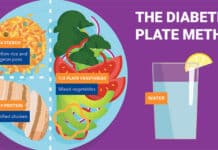In this day and age, it isn’t easy to prepare a fresh, balanced dinner every evening after work. Nor is it easy to prepare home-cooked breakfasts and lunches for you and your children.
Pre-prepared foods have been a solution to time constraints in our chronically busy lives, from cereal bars and granola bars to frozen waffles and frozen dinners. But has this shift away from the kitchen been a good solution, or has it come at a serious cost?
In his latest book, Cooked, Michael Pollan laments the fact that the average American spends just 27 minutes on food preparation a day, less than half the time spent in the 1960s.
This decrease in food preparation time is linked to increased obesity rates, a relationship established in a Harvard study, “Why Have Americans Become Obese?” So why is home cooking so important to our health?
Technological advancements in the mass production of food have allowed food preparation to be outsourced to commercial food manufacturers. This food is often processed for preservation and taste. As a result, we:
- Spend less time preparing food, have more time to eat, and eat more food
- Eat more nutritionally-bankrupt processed foods that are higher in salt, sugar and fat
- Eat less whole foods that are rich in nutrients
When we prepare our own food, we control what goes into it and are better able to select nutritious whole foods and avoid additives. A little planning can go a long way in lessening dependence on processed foods, and not all pre-prepared foods need to be avoided!
- Buy low- or no-sodium frozen vegetables. They are pre-cut and can be stored much longer than fresh vegetables, saving you prep time and trips to the grocery store
- Cook large batches of nutritious whole grains like brown rice or quinoa and store leftovers for later in the week
- Buy fresh rotisserie chicken or deli meats to eliminate cooking time (be careful to avoid packaged lunch meats, as they are processed and can contain high levels of sodium)
Read up on some more time-saving tips, including ways to get your kids involved. What suggestions do you have to fit more home cooking into your schedule?






